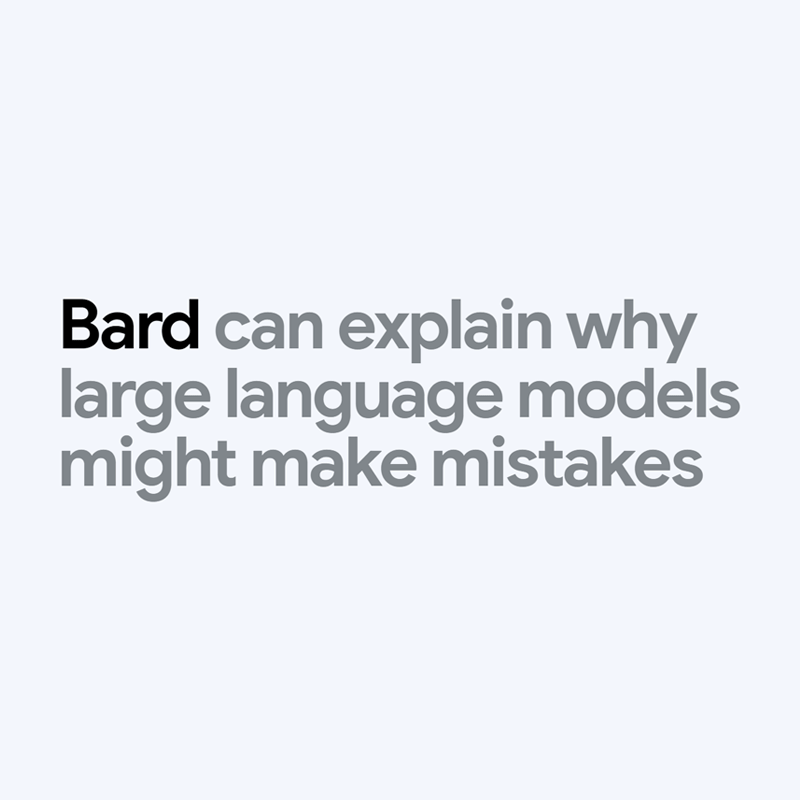
The AI field was dull and mostly quiet. Most of the buzz it created was mostly contained, and happened only within its own field.
But when OpenAI introduced ChatGPT as an AI chatbot tool, the internet was quickly captivated. This is because the AI is able to do a wide range of tasks, including writing poetry, technical papers, novels, and essays.
And when others, like Microsoft, started embedding the technology into Bing and Edge, Google started to worry.
And when OpenAI started monetizing ChatGPT with ChatGPT Plus, Google was certain that it had to move fast.
Then, when Google announced Bard, the AI should be superior to ChatGPT, because at that time, Bard was allowed to learn from the internet, whereas ChatGPT's knowledge was limited to things that are up to 2021.
Google failed however. And because the botched launch, Bard effectively wiped around $100 billion off the firm's market value.
About a month after its epic failure, Google is finally ready.
Today we're starting to open up access to Bard, our early experiment that lets you collaborate with generative AI. You can use Bard to boost your productivity, accelerate your ideas and fuel your curiosity. Learn more, including how to sign up ↓ https://t.co/4zDI5RD1fr
— Google (@Google) March 21, 2023
We're expanding access to Bard in US + UK with more countries ahead, it's an early experiment that lets you collaborate with generative AI. Hope Bard sparks more creativity and curiosity, and will get better with feedback. Sign up: https://t.co/C1ibWrqTDr https://t.co/N8Dzx1m0fc
— Sundar Pichai (@sundarpichai) March 21, 2023
Initially made available to a limited number of users in the United States and the United Kingdom, before accommodating additional users, countries and languages over time, Google Bard is the company's bold answer to the chatbot craze driven by OpenAI and Microsoft.
Bard is meant to demonstrate what Google is capable of, by providing similar technology.
But since the technology called a large language model, or LLM, which learns skills by analyzing vast amounts of data, has faced criticism that they are sometimes unpredictable and can be untrustworthy, and that Bard had made a huge mistake when it first debuted, Google is taking a much more careful approach.
For example, rather than embedding the technology to its search engine, like Bing or DuckDuckGo, Google publicly launched Bard as a standalone webpage that features a question box.
At the bottom of an answer there is a button that says “Google it,” which takes users to a new tab with a conventional Google search results page on the topic.
Then, Google also posted a disclaimer under Bard’s query box to warn users that issues may arise.
"Bard may display inaccurate or offensive information that doesn’t represent Google’s views," said Google.
Google also provides users three options of responses for each question, and lets them provide feedback on the usefulness of a particular answer.
"We are well aware of the issues; we need to bring this to market responsibly," said Eli Collins, Google’s vice president for research. "At the same time, we see all the excitement in the industry and the excitement of all the people using generative AI."
Learning from its mistakes, Google executives pitched Bard as a creative tool designed to draft emails and poems and offer guidance on how to get children involved in new hobbies like fly-fishing.
The company is keen to see how people use the technology, and plans to further refine the chatbot based on use and feedback, the executives said.
Unlike its search engine, Bard is not designed to be a source of reliable information, at least initially.
"We think of Bard as complementary to Google Search," said Sissie Hsiao, a Google vice president for product. "We want to be bold in how we innovate with this technology as well as be responsible."
Bard's release to the public represents a significant move for Google to remain relevant, in the world where people have realized the benefits, and the abilities of generative AIs.
Before this, many in the tech industry believe that generative AIs, led by ChatGPT, can disrupt Google.
ChatGPT, the AI language model from a research lab, has been making headlines since November for its ability to respond to complex questions, write poetry, generate code, plan vacations and translate languages. And following the release of GPT-4, the AI behind ChatGPT, the chatbot can even respond to images.
When ChatGPT captivated its audience, it sent ripples across the industry that Google's CEO Sundar Pichai had to declare a "code red," and called Google founders, Larry Page and Sergey Brin.
in response to ChatGPT’s release, Google is making AI its central priority.
Read: 'Code Red': OpenAI's ChatGPT Forces Google Founders To Leave Their 'Retirement'
"It’s important that Google start to play in this space because this is where the world is headed," said Adrian Aoun, a former Google director of special projects.
Sissie Hsiao said in an interview that the company had not yet determined a way to make money from Bard.
"It is early days for the technology," said Hsiao.
“We’re exploring how these experiences can show up in different products.”
"LLMs are tricky," added Eli Collins.
"Bard is no exception."
